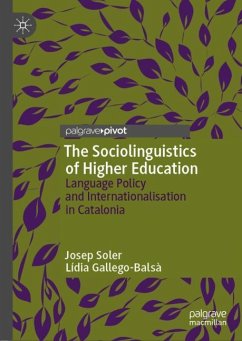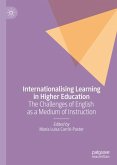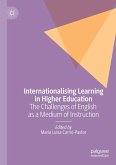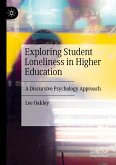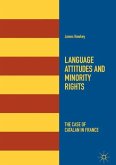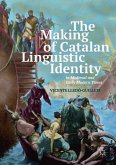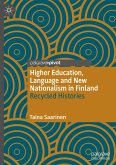This book investigates the sociolinguistic dimension of the internationalisation of higher education, examining the linguistic tensions and ambiguities experienced by universities around the world, particularly in non-anglophone contexts. Joining current debates within discursive and ethnographic approaches to language policy, the authors analyse the narrative emerging from university language policy documents, and then trace the stance-taking processes of different stakeholders at a small university in Catalonia. They pay particular attention to how teachers, administrative staff, and exchange students position themselves in connection to the role of Catalan and its coexistence with other languages at the university. This book will be of interest to language policy scholars and practitioners, as well as graduate students in sociolinguistics and applied linguistics
"This book will not only benefit scholars who are specialists in the field of language policy and planning and multilingualism but will also offer some policy insights for university administrative staff and language policy makers. ... this book links macro and micro perspectives on language policy and internationalization in higher education and offers some important insights on how different stakeholders may respond to the challenges associated with glocalization." (Yi Wang, Language in Society, Vol. 50 (3), 2021)
"The clarity of the writing and coherent organisation makes this a useful book for a heterogeneous readership. For the general audience, the book includes essential theoretical and methodological concepts about internationalisation, LP and ethnographic methods indispensable for familiarisation with the topic at hand. ... this book contributes to the field of LP with a fresh perspective, valuable for anyone interested in the relationship between internationalisation and language in higher education." (Rosana Villares, Miscelánea, Vol. 62, 2020)
"The clarity of the writing and coherent organisation makes this a useful book for a heterogeneous readership. For the general audience, the book includes essential theoretical and methodological concepts about internationalisation, LP and ethnographic methods indispensable for familiarisation with the topic at hand. ... this book contributes to the field of LP with a fresh perspective, valuable for anyone interested in the relationship between internationalisation and language in higher education." (Rosana Villares, Miscelánea, Vol. 62, 2020)

